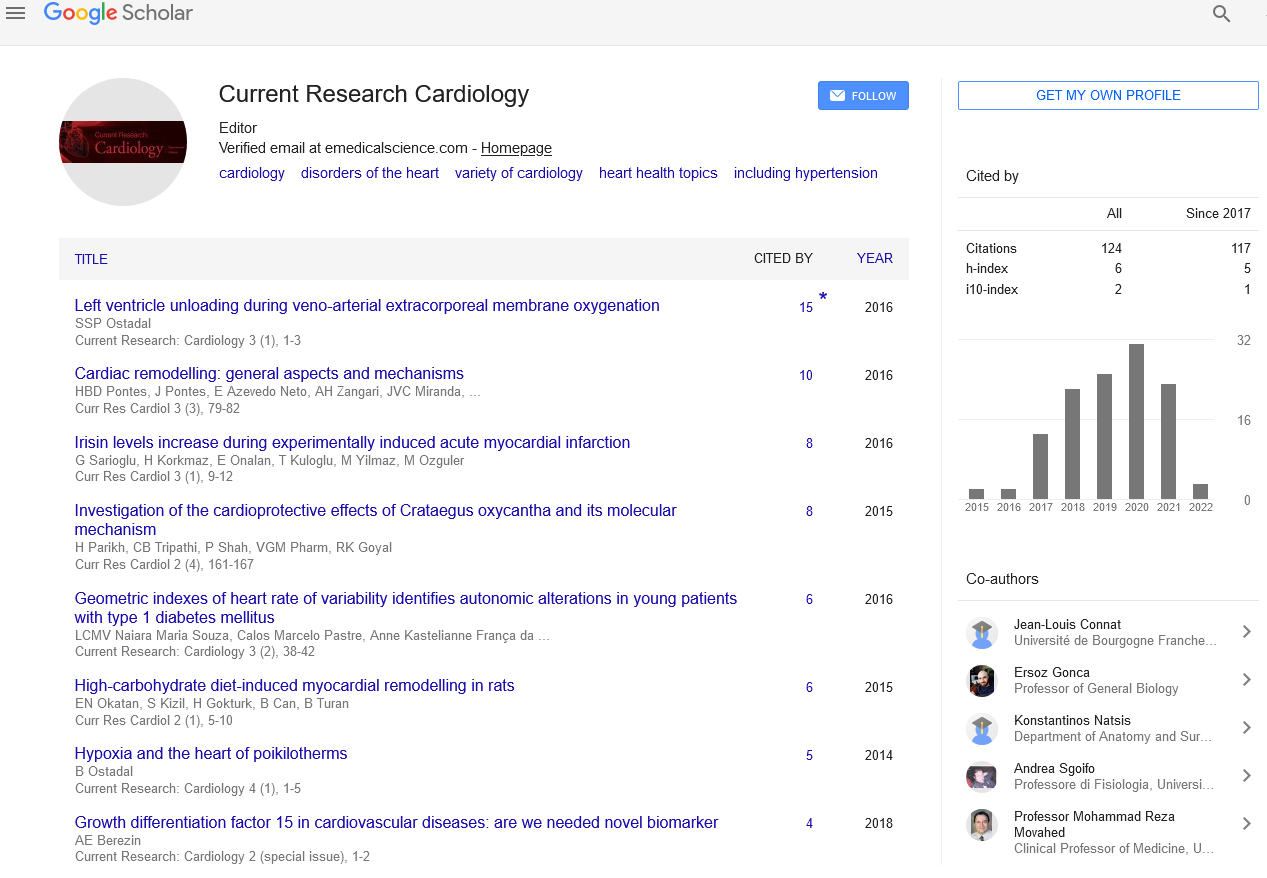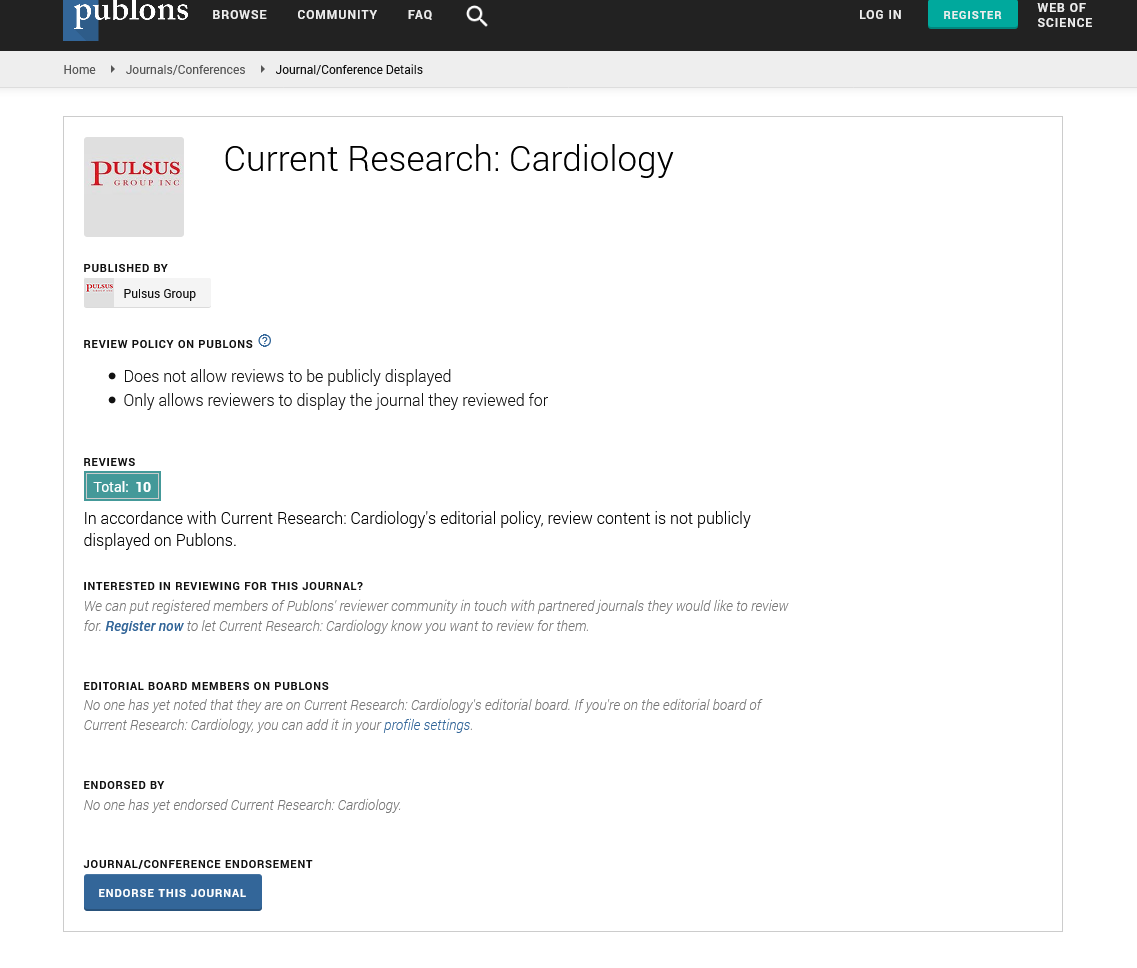Challenge of health literacy in cardiovascular disease prevention
Received: 30-Nov-2018 Accepted Date: Dec 03, 2018; Published: 11-Dec-2018
Citation: Santos P. Challenge of health literacy in cardiovascular disease prevention. J Heart Res. December 2018;1(1):1.
This open-access article is distributed under the terms of the Creative Commons Attribution Non-Commercial License (CC BY-NC) (http://creativecommons.org/licenses/by-nc/4.0/), which permits reuse, distribution and reproduction of the article, provided that the original work is properly cited and the reuse is restricted to noncommercial purposes. For commercial reuse, contact reprints@pulsus.com
Cardiovascular disease is the main cause of death worldwide. Although its impact is continuously decreasing in the richest countries since late 80’s, in the rest of the world the situation is quite different, showing an increase both in prevalence of disease as in specific death rates [1].
From the preventive point of view, the natural history of atherosclerosis starts early in the life at the primordial level by lifestyles’ options and continues as the risk factors appear and combine in a constellation of global cardiovascular risk that can cause an event. This knowledge about cardiovascular disease includes
This knowledge about cardiovascular disease includes the rigorous definition of the factors related to the risk of event, and the quantification of their impact, measured by the two complementary aspects: On one side, we have the increased likelihood of an event according the presence of the various risk factors, isolated or in association; On the other side, we prove that modelling each factor, as arterial hypertension, high cholesterol, smoking habits or diabetes, we can really lessen the cardiovascular disease, demonstrating the causal relationship.
The success in the last year’s reduction of cardiovascular disease burden in western countries is based on the strategies aiming to treat the risk factors individually and to control the global risk as a whole. Developing countries will inevitably run a similar way and potentially achieve the same goals.
We now have adequate technologies to diagnose and follow hypertension, dyslipidaemia or diabetes and good medications to treat them, but we bump into the difficulty of persuading patients to adhere [2].
Several factors contribute to this problem, including those related with the patients, as the failure in understanding the disease as a real threat or to perceive the intervention as useful, those related with providers, as the main sponsors of clinical reasoning decision-making and doctor-patient relationship, and related with health care system and policies in the creation of conditions of accessibility and equity for patients [3].
The common denominator is the lack of health literacy, consisting in the capacity to gather information and transform it in attitudes and skills towards better health decisions and more adequate access and utilization of health services [4].
If the approach of final events like myocardial infarction, stroke, or heart failure are very dependent on the healthcare and the available technologies, the management of risk factors are more reliant on individual options about lifestyles and adherence to medications.
The investment in health literacy is the key for an effective preventive medicine, [5] leading people to know the variables at stake, to understand how they interact, and to be able to integrate them in their daily lives, aiming a better health for themselves and for all community.
The strategy for dealing with risk factors has gone for transforming risk factors in diseases and treat them aggressively with medications. Nowadays, we notice that this strategy is scant. Although the actual best medications cover a significant part of pathological pathways, their efficiency is compromised by salt and fat ingestion, overweight, physical inactivity, psychosocial determinants and smoking initiation. And, like for cardiovascular risk factors, we now have evidence for prescribing better food intake, more physical activity and an adequate psychological and social environment for primordial prevention of cardiovascular disease, aiming to prevent the ultimate goals (events), but also the intermediate ones (risk factors). However, if we did define the disease of arterial hypertension some years ago, we hardly can do the same for the disease of those who ingest great amounts of salt or fats, forcing to be creative when designing the strategies for achieving these objectives.
Since the epidemiological transition of mid-20th century, the main determinants of disease and death are well established, [6] and depend mainly on lifestyle choices, structured very early in the life line. The challenge today must be to change the choices in youth leading youngers to assume healthy behaviors through life, able of delaying the onset of clinical diseases, and their respective disabilities, maximizing their potential of health. In the era of information, it’s crucial to promote good education for health, able of increasing literacy and empowerment of population.
REFERENCES
- Roth GA, Johnson C, Abajobir A, et al. Global, regional, and national burden of cardiovascular diseases for 10 causes, 1990 to 2015. J Am Coll Cardiol. 2017;70(1):1-25.
- Oliveira AC, Santos P. Hypertension: Drug adherence and social factors. J Hyper-tens Manag. 2018;4(2):1-5.
- Osterberg L, Blaschke T. Adherence to medication. N Engl J Med. 2005;353(5):487-97.
- Ratzan S, Parker R. Introduction. In: Selden CR, Zorn M, Ratzan S, Parker RM, editors. Health literacy Current bibliographies in medicine 2000-1. Bethesda, Md. (8600 Rockville Pike, Bethesda 20894): U.S. Dept. of Health and Human Services, Public Health Service, National Institutes of Health, National Library of Medicine, Reference Section. 2000;5-7.
- Santos P, Sá L, Couto L, Hespanhol A. Health literacy as a key for effective preventive medicine. Cogent Social Sciences. 2017;3(1).
- Mendis S, Puska P, Norrving B. Global atlas on cardiovascular disease prevention and control: World Health Organization. 2011.






